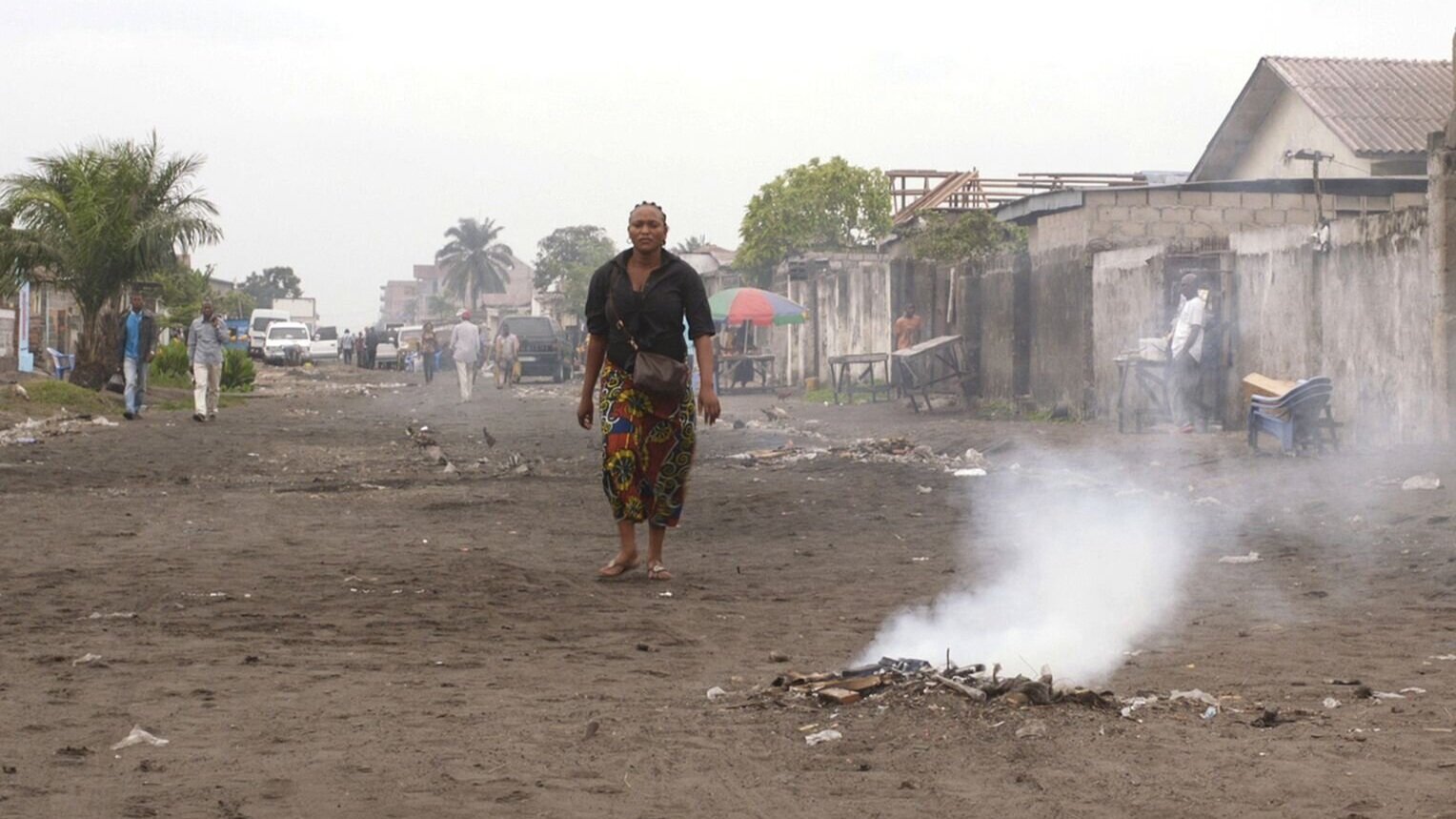Félicité
Social comment combines with an emphasis on music in a Congolese drama that falls away in its second half.
Had Alain Gomis's film ended halfway through, it would have received a much higher rating from me. That does not mean that the first half is perfect, but it is substantially more appealing than what follows. Set in the Congo, in Kinshasa, this is a work that portrays the struggle to survive of so many people who live there. At its heart is the titular figure of Félicité played by Tshanda Beya who brings a strong on-screen presence to the role. Félicité is a singer who is bringing up her 14-year-old son, Samo (Gaetan Claudia), on her own. She is getting by, but her situation is transformed when Samo is involved in a street accident and ends up in hospital in need of an operation to save a leg. It's a case of money being required up front before the surgeons will act, in addition to which the total cost including medicines is formidable.
Once this situation is established, the first half of Félicité concentrates on the mother's many attempts to get the money, be it contributions from friends (albeit that none is wealthy) or an approach made to a powerful local man. Understandably, she also puts in a plea for help to the boy's father, but this is rejected. All of this makes for a simple but affecting tale which, since it revolves around Félicité being a strong, independent woman gains from the casting of this central role. Initially, it seems that the stress on local atmosphere here will be a bonus with its substantial emphasis on Congolese songs. When Félicité herself sings it effectively suggests a symbolical expression of her spirit in adversity, However, the musical scenes impede the flow of the storytelling and branch out rather oddly to include a symphony orchestra. Eventually a choir is added too and their contribution sounds consolatory but no subtitles are provided for any of the vocal offerings.
Unfortunately, this is a long film (it lasts for over two hours) and, although it does incorporate a study of Félicité's association with a helpful but hard-drinking and not always reliable man named Tabu (Papi Mpaka), the tale totally runs out of steam at the film's mid-point. An early indulgence in nighttime shots increases unhelpfully: initially this comes across as a heavy-handed expression of the dark night of the soul, but later on it is suggested that it represents a source of hope. However, these implications are never really clarified, while the style of the film is all over the place: at the outset there is a strong documentary flavour but then we have some stylisation including a couple of scenes with superimposed images and an increasing use of dreamlike sequences. None of this seems meaningful and, while Félicité's state sometimes puts her future in doubt and challenges her resolution, far too little happens in its second half to give the film momentum. As an insider's view of the Congo with an appealing central character, Félicité offers much that is welcome, but it falls away seriously and as you watch the second half you feel that you are just sitting it out.
MANSEL STIMPSON
Cast: Tshanda Beya, Papi Mpaka, Gaetan Claudia, Le Kasaï Allstars.
Dir Alain Gomis, Pro Arnaud Dommerc, Alain Gomis and Oumar Sall, Screenplay Alain Gomis with Olivier Lousteau and Delphine Zingg, Ph Céline Bozon, Art Dir Oumar Sall, Ed Fabrice Rouaud and Alain Gomis.
Andolfi/Granit Films/Cinékap/Need Productions/Fixer Congo/Katuh Studio/Shortcut Films-MUBI.
129 mins. France/Senegal/Belgium/Germany/Lebanon/Gabon/Italy/Democratic Republic of the Congo. 2016. Rel: 10 November 2017. Cert. 12A.


